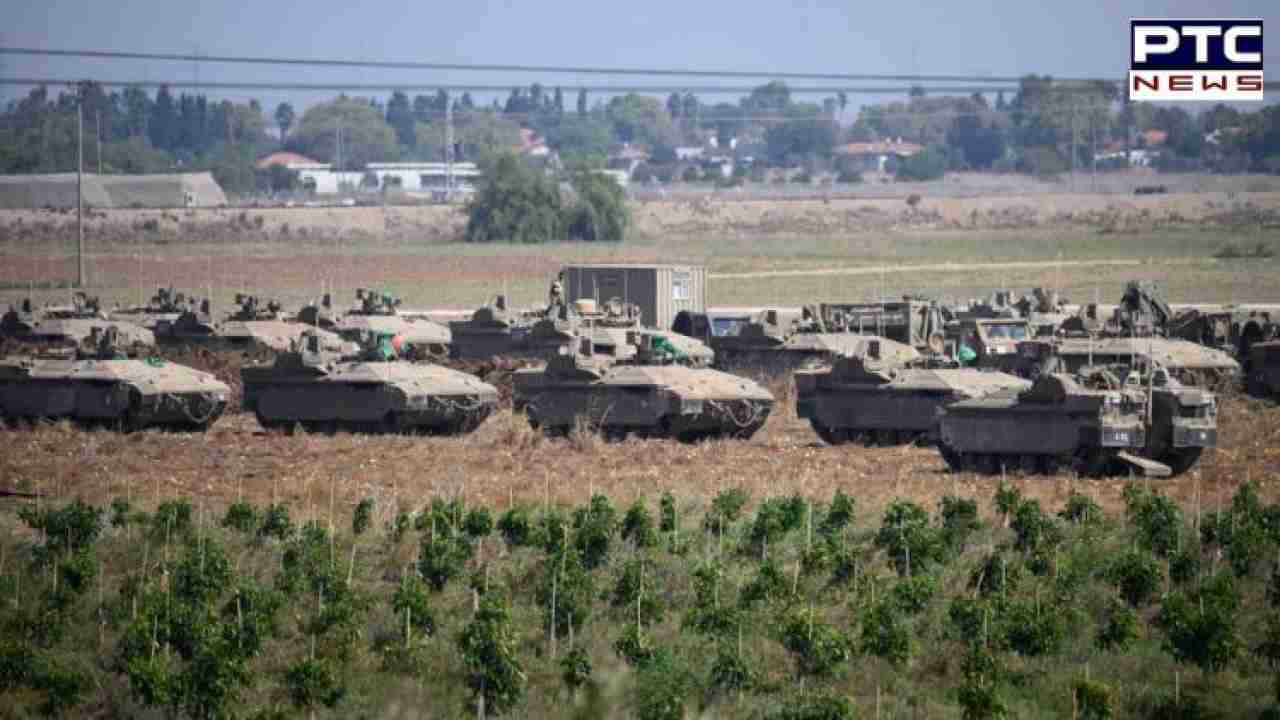Israel-Gaza War: In the wake of the deadliest attack in its history, Israel is intensifying its preparations for a major ground assault on Gaza. The Israeli government has expressed its determination to dismantle Hamas, a group designated as a terrorist organisation by several Western nations, including the United States. Here are ten key developments in this escalating crisis:
- Pledge to Dismantle Hamas: Israeli authorities have reaffirmed their commitment to dismantling Hamas, a radical Palestinian organization with significant influence in the Gaza Strip. This vow comes as a response to the recent shocking attack carried out by the group.
- Preparation for Ground Assault: Israeli defense forces are actively gearing up for a substantial ground offensive in Gaza. This operation aims to neutralize Hamas's leadership and capabilities.
- Urgent Evacuation Warnings: Richard Hecht, a spokesperson for the Israeli military, has urged civilians residing in northern Gaza, where Hamas's leadership is concentrated, to evacuate the area promptly. Israel is making clear its intention to launch a comprehensive assault by air, sea, and land.
- Prime Minister's Warning: In a video message released by his office, Israeli Prime Minister Benjamin Netanyahu has emphasized that more significant actions are forthcoming in response to Hamas's recent attack. He made this statement while donning a flak jacket and addressing soldiers.
- Humanitarian Concerns: Approximately 1.1 million people, nearly half of Gaza's 2.4 million population, reside in the northern region of the territory. Aid agencies are deeply concerned about the feasibility of evacuating these civilians, especially given the dwindling supplies of essential resources such as food, water, fuel, and medical aid due to Israel's blockade. This has raised alarms about an impending humanitarian crisis.
- UN's Warning: UN Secretary-General Antonio Guterres has described the situation in Gaza as reaching "a dangerous new low." The combination of a potential Israeli ground invasion and the dire humanitarian conditions poses a grave challenge.
- Hostage Crisis: Israel has claimed that Hamas has taken approximately 150 hostages, including foreigners, during its recent offensive. The prospect of a full-scale ground invasion raises fears for the safety and well-being of these captives.
- International Reactions: Israel's determination to eliminate Hamas has been met with mixed international responses. While some Western countries, including the US, classify Hamas as a terrorist organization, Iran's Foreign Minister Hossein Amirabdollahian praised Hamas's actions as a "historic victory." This contrasting global reaction further complicates the situation.
- Global Concerns and Warnings: World leaders, including US President Joe Biden, have cautioned against the escalation of the conflict. The US has deployed a second aircraft carrier in the region to deter hostile actions against Israel and to protect civilian lives.
- Northern Border Tensions: Israel is also grappling with heightened tensions on its northern border with Lebanon, where exchanges of artillery fire have occurred between Israeli forces and the Iran-backed Hezbollah group. This adds an additional layer of complexity to Israel's current challenges.
The current crisis was ignited by a massive breach of the heavily fortified border between the Gaza Strip and Israel, orchestrated by Hamas. This breach led to a rampage where more than 1,300 individuals were killed through gunfire, stabbings, and burnings. In response, Israel imposed a severe siege on Gaza and subjected the enclave to an unprecedented level of bombardment, causing substantial damage to its infrastructure. The situation remains extremely volatile, with grave implications for both the region and the international community.
- With inputs from agencies


